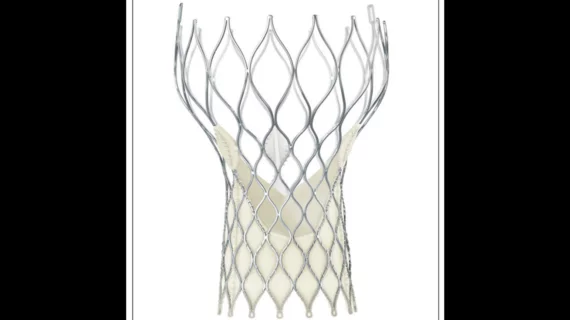First-generation Medtronic TAVR valves linked to strong outcomes after 12 years
Transcatheter aortic valve replacement (TAVR) with Medtronic’s first-generation, self-expanding heart valve is associated with positive clinical outcomes and “reassuring” durability after 12 years, according to new data published in Cardiovascular Revascularization Medicine.[1]
“Currently, TAVR is increasingly adopted for younger and lower risk patients with longer life expectancy than those treated at the beginning of the TAVR era, making long-term durability data of crucial importance,” wrote first author Testa Luca, MD, PhD, a cardiologist with IRCCS Policlinico S. Donato in Italy, and colleagues. “However, as a consequence of the elderly and prohibitive/high surgical risk population initially treated, i.e. with a significant competing risk of death, long-term data are still limited both in terms of follow-up length and population size.”
Luca et al. explored data from nearly 900 patients who received a first-generation CoreValve transcatheter heart valve from Medtronic at one of eight Italian TAVR facilities from 2007 to 2011. The Evolut R and other variations of Medtronic’s CoreValve technology were not yet available to the public when this study originally began enrolling patients.
The mean patient age was 83 years old and 54.3% were women. The mean Society of Thoracic Surgeons score was 6.1 and 76.3% of patients presented with New York Heart Association class III or IV symptoms. In addition, 80% of patients presented with hypertension, 48.6% had a history of coronary heart disease, 34.6% had a history of peripheral artery disease and 30% presented with prior percutaneous coronary intervention.
After 12 years, “when considering non-cardiac death as a competing risk,” cardiovascular mortality was seen in 23.9% of patients. The 12-year risks of structural valve deterioration (SVD), bioprosthetic valve dysfunction (BVD), bioprosthetic valve failure and severe hemodynamic valve deterioration were 3.6%, 7%, 3.12% and 1.7%, respectively.
“TAVR with the first-generation CoreValve bioprosthesis was an effective treatment for severe aortic stenosis in high-surgical risk patients,” the authors wrote. “In addition, the durability of this SE bioprosthesis was reassuring.”
The researchers noted that it is especially important to focus on long-term rates of SVD, BVD and other durability-related outcomes as more and more time passes after treatment.
“Durability data are of paramount importance with respect to the adoption of TAVR for younger patients with long life expectancy,” they wrote.
This research was funded by Medtronic Italy, an affiliate of Medtronic.
Click here to read the full study.

